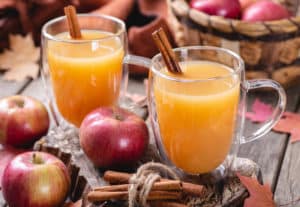How Do Holiday Treats Affect Your Teeth?


Holiday cheer is often synonymous with rich, sugary indulgence in holiday treats. Don’t let your teeth (and smiles) suffer the effects of a sugary season. Learn just how sugars affect your teeth and what you can do to limit their toll on your pearly whites!
Cavities and Sugar: What’s the Relation?
The Centers for Disease Control and Prevention reports that tooth decay is the most prevalent chronic disease among both children and adults. You know tooth decay by the term “cavities” and they come from the everyday foods and drinks you consume. When you eat, sugars in foods will start to break down in your mouth in the first phase of digestion. During that breakdown, sugars will bind to certain types of bacteria, creating a clear, sticky paste called “plaque”.
Plaque doesn’t get washed away when you eat and drink, but actually sticks to your tooth surfaces. Because it’s clear, it can be tricky to see unless you’re looking for it. That plaque is actually acidic, and because of this, it will break up minerals in your teeth when it’s not brushed away properly. This leads to tooth decay, or cratered areas of the teeth where bacteria can cause damage. Your gums will even get irritated by acidic plaque and will start to pull away from your teeth over time, causing gum disease.
92% of Americans have had cavities by the time they are adults. 64.7 million American adults also have gum disease, as the two diseases go hand-in-hand. Both lead to tooth loss and mushy gums over time, but this process all starts with what you eat and drink! That means, if you adjust your diet, cut down on sugar and acidic drinks, you can potentially avoid oral health issues. This is especially important during the winter when sugary holiday treats and drinks are in abundance.

Sugar Limits: What Are They?
There are actually recommended sugar limits for men, women and children to help them avoid health problems and oral issues such as tooth decay. The American Heart Association—as well as many other organizations—recommend that men eat no more than 9 teaspoons (36 grams/150 calories) of sugar a day. Women should have no more than 6 teaspoons (25 grams/100 calories), and children should have less than 6 grams a day.
Infants should have no added sugars in their diets, and especially shouldn’t have juice or soda in their bottles. These limits help everyone avoid oral health diseases that happen due to sugar, plus, they help the population as a whole stay healthy. Always check food labels and eat sugar sparingly.

Holiday Treats and Sweet Desserts
Some of the most common holiday treats include dishes such as:
- Traditional English Trifle
- Christmas/Bread Pudding
- Sugar Cookies with Icing
- Baked Alaska
- Gingerbread Men/Houses
- Eggnog
- Christmas Cake
- Fruit Cake
- Sugarplums
- Christmas Candies and Caramels
- Christmas Yule Log
- Pumpkin Cake Roll
Did your favorite holiday treats make the list? Holiday treats can also come in the form of holiday drinks such as hot cocoa, warm apple cider, wines, coffees, teas and more. These foods are not generally bad for you, if they are eaten sparingly. Most—if not all—of these listed holiday treats and drinks are full of sugar or acids like citric and carbonic acid. The rest have the main ingredient of sugar, which is why they taste so sweet.

How Can You Protect Your Teeth?
To reduce your risk for tooth decay, use fluoride products on your teeth and drink through a straw. Also, try choosing sodas or products with carbonation that are at least sugar-free, so you don’t have both tooth decay and tooth erosion working against you. The more sugar you eat, the more plaque your mouth makes, so make sure you’re only eating your favorite holiday treats and saving those desserts for special times.
Your best friend when it comes to avoiding oral health issues will be great oral hygiene habits. The best to have are:
- Brushing your teeth at least twice a day, for two minutes at a time.
- Finish up brushing by flossing your teeth. Make sure to use new floss each time, floss all the way up in your gum line and gently scrape plaque off your teeth as you go.
- Visit the dentist at least twice a year, as recommended by the American Dental Association.
- Use fluoride products (such as in mouthwash or prescribed toothpastes) to give your teeth extra protection against tooth decay.
Enjoy Your Holiday Treats with Protection
If you know that you’re going to indulge a lot during the holiday season, it may be smart to invest in dental sealants to protect your teeth from cavities. Holiday treats are in abundance throughout the winter months, and there is actually a spike in how many cavities our patients get once the holidays are done. One way to protect your teeth is through dental sealants.
A dental sealant is a thin, plastic coating that Dr. Ania paints over your tooth surfaces. When you receive a dental sealant, it will bond to your tooth and seal away all the grooves and cracks of the teeth. This coating will prevent plaque and other acidic substances from causing erosion and decay in the grooves of the teeth. These are areas where food can more easily become trapped, and where a toothbrush may have a harder time cleaning. A dental sealant will also help prevent tooth decay from happening inside the tooth that commonly leads to root canals and more extensive procedures.These coatings can actually last you up to 10 years when you take care of your teeth.
To learn more about dental sealants, as well as how to enjoy your holiday treats without all the cavities, call Dr. Ania’s office at 303-443-0998 for your free consultation!


